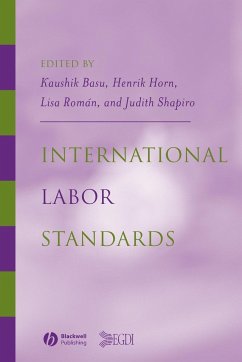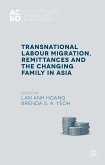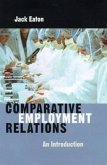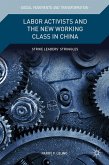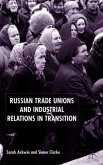This book addresses the controversial call for international labor standards, seeking to productively further this debate by considering the economic implications and history of these standards. A result of an initiative by Professor Kaushik Basu in his capacity as member of the Expert Group of Development Issues (EGDI) sponsored by the Swedish Foreign Ministry, the contributions are based on discussions at a seminar held in Stockholm in August 2001. They focus on four central questions: * How did the labor standards movement evolve in the past, and what can we learn from its history? * What do contemporary economic theories tell us about the possible impact of international labor standards? * What solid empirical evidence do economists have about the incidence, causes and effects of child labor? * What kind of global institutions do we have or need in order to enforce any agreement on labor standards, and what role should the ILO and WTO play? Compiling the best research in the field, this book provides a solid basis for policy decisions, while also serving as a challenging text for students in trade, development, and labor economics.
Hinweis: Dieser Artikel kann nur an eine deutsche Lieferadresse ausgeliefert werden.
Hinweis: Dieser Artikel kann nur an eine deutsche Lieferadresse ausgeliefert werden.
'Questions relating to international labour standards havebeen the subject of much controversy and research as several unionsand some rich-country governments have sought to advance themthrough sanctions while most poor-country governments and someimportant and sizeable democratic unions in them have opposed this.This volume is an important and timely contribution to this debate,providing scholarly and penetrating research to illuminate theissues at stake. It is a classic that must be studied by everyoneengaged in this debate.' Jagdish Bhagwati, ColumbiaUniversity
'International Labor Standards is an extremelyvaluable and wide-ranging introduction to current debates overlabor standards. The book gives a detailed history of standards; abroad and even-handed view of economic arguments for and againststandards; and serious discussion of the problem of child labor.[It] concludes with an intriguing analysis of the potential role ofthe World Trade Organization in helping to raise standards. Inplace of the vitriole and rhetoric that the debate over standardsall too often degenerates into, this volume is a seriousinvestigation of what we know and do not know in this area.'Richard Freeman, London School of Economics
'This impressive book brings together some of the bestresearch on the important and controversial topic of internationallabor standards. The contributions are illuminating andprovocative, and they provide a valuable scientific foundation forpolicy debates.' Kyle Bagwell, Columbia University
'International Labor Standards is an extremelyvaluable and wide-ranging introduction to current debates overlabor standards. The book gives a detailed history of standards; abroad and even-handed view of economic arguments for and againststandards; and serious discussion of the problem of child labor.[It] concludes with an intriguing analysis of the potential role ofthe World Trade Organization in helping to raise standards. Inplace of the vitriole and rhetoric that the debate over standardsall too often degenerates into, this volume is a seriousinvestigation of what we know and do not know in this area.'Richard Freeman, London School of Economics
'This impressive book brings together some of the bestresearch on the important and controversial topic of internationallabor standards. The contributions are illuminating andprovocative, and they provide a valuable scientific foundation forpolicy debates.' Kyle Bagwell, Columbia University

